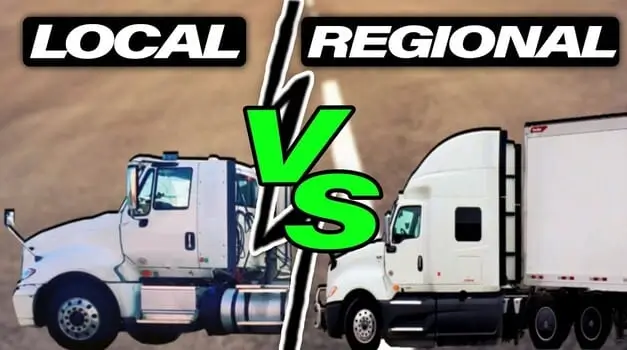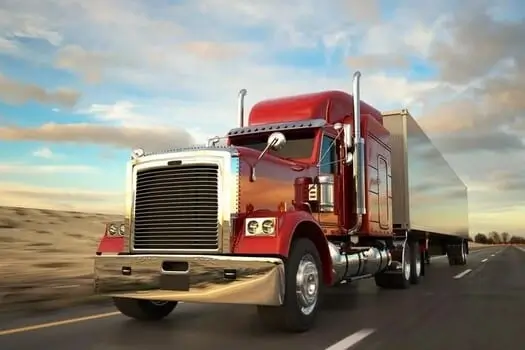
August 9, 2023

2907 Views

7 min read

June 2, 2022

2029 Views

6 min read
The bill, which was recently introduced in the House of Representatives, would do away with many of the regulatory burdens that make it difficult for truck drivers to get and keep their commercial driver’s licenses (CDLs). Let’s dig into this a little bit.
What is a CDL License?
A CDL is a commercial driver’s license that allows an individual to operate a commercial motor vehicle (CMV). A CMV is a vehicle used to transport goods or passengers for hire.
How to Get a CDL License
Currently, there are many requirements that truck drivers must meet to get their CDLs. These requirements include passing a written examination, a skills test, and a road test.
The written examination tests an applicant’s knowledge of the regulations that apply to operating a CMV. The skills test is designed to assess an applicant’s ability to use a CMV safely. The road test ensures that an applicant can safely operate a CMV in traffic.
To keep their CDLs, truck drivers must comply with the regulations that apply to CMV operations. These regulations include requirements for hours of service, vehicle maintenance, and driver fitness.
Steps to Obtain a CDL License in 2024
We can break down the process of getting a CDL license into three steps:
How to Get a Class A License
A Class A CDL is needed to operate any combination of vehicles with a gross vehicle weight rating (GVWR) of 26,001 or more pounds, provided the GVWR of the vehicle being towed is more than 10,000 pounds.
To acquire a Class A CDL, an individual must first obtain a Class A CLP. A Class A CLP allows an individual to operate a CMV under the supervision of a licensed driver. After that, the applicant must take and pass the written and road tests.
How to Get a Class B License
There are a few things you will need to do before you can start the process of getting your Class B license. The first is to make sure that you have a clean driving record. If you have any accidents or moving violations on your record, you must clear them up before applying for a Class B license. You will also need to pass a medical exam and have a valid U.S. driver’s license.
Once you have all of the necessary paperwork in order, you will need to take a written exam. This test will examine your knowledge of the rules of the road and safe driving practices. You will also need to take a skills test to ensure that you can operate a commercial vehicle safely.
Once you have passed the written and skills tests, you will be issued a Class B license. This license will allow you to drive any vehicle under 26,001 pounds. You will also be able to tow a trailer under 10,000 pounds.

How to Get a Class C License
You’ll need a Class C commercial driver’s license (CDL) to be a truck driver. You’ll need to pass skills and knowledge tests to get your CDL. This process can differ slightly from state to state, but there are some general requirements that you’ll need to meet no matter where you apply.
The first step is to ensure that you have a valid driver’s license. You’ll also need to be at least 18 years old (21 if you want to drive across state lines). Once you have your license, you’ll need to take a written test to obtain your permit. This permit will allow you to practice driving with a licensed truck driver.
Once you have your permit, you’ll need to log at least 50 hours of driving time. You’ll also need to take a skills test, which will involve completing a pre-trip inspection, backing up, and other maneuvers. After you’ve passed the skills test, you’ll finally be issued your CDL.
Now that you have your CDL, you’ll need to keep up with your logs and follow all regulations to keep your license. If you’re ever found to be driving without a valid license or logs, you could face severe penalties.
With a Class C CDL, you’ll be able to drive any vehicle like buses, vans, and trucks. If you’re interested in driving a larger vehicle, you’ll need to obtain a Class A CDL.
Getting your CDL can be a bit of a process, but it’s well worth it if you’re interested in becoming a truck driver. Just make sure that you follow all of the steps and requirements to avoid any penalties.
Pandemic Emergency Rules and Waivers
COVID-19 has resulted in an uncertain time for the trucking industry. Many carriers have to adjust to the new reality, including changing their operations to comply with state and federal regulations. One of the biggest changes is that emergency rules and waivers have been put in place for getting and keeping commercial driver’s licenses (CDLs).
The new rules and waivers are intended to provide a “sensible remedy to the unnecessary regulatory barriers” placed on the trucking industry in recent years. The goal is to allow carriers to operate safely and efficiently while ensuring that their drivers are appropriately licensed and qualified to operate their vehicles.
CDL Endorsements and Restrictions
Under the new rules, drivers who are currently licensed in another state will be able to obtain a CDL in the state of their current residence without having to take the written and skills tests required for new applicants.
However, some restrictions apply. Drivers who have a CDL from another state but do not have the proper endorsements for the type of vehicle they will be operating in the state of their current residence will be required to obtain the appropriate approvals.
The new rule covers all CDLs, including class A, B, and C. The emergency rule has dramatically reduced the time it takes to get a CDL, which is beneficial for both drivers and carriers. In addition, it also extended the expiration dates of CDLs that have already expired or are set to expire shortly. This allows carriers to continue to operate without worrying about their drivers’ licenses expiring.
At FleetCare, we are committed to keeping our drivers up-to-date on the latest industry news and developments. For more information on the new rule and other changes that have been made in response to COVID-19, give us a call today.
Test